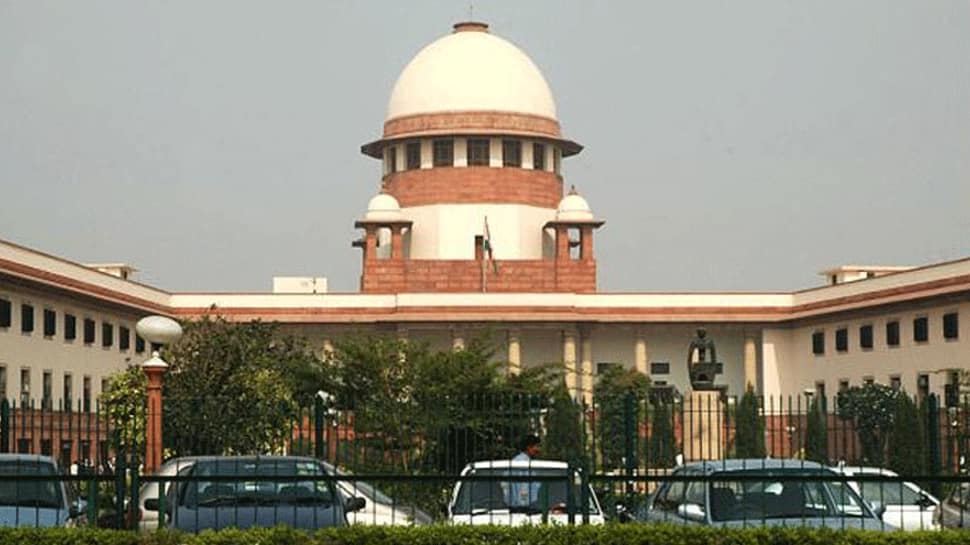NEW DELHI: In a landmark verdict, the Supreme Court of India on Tuesday declined to grant legal recognition for same-sex marriages, yet it called for the establishment of a committee by the Union of India to assess the rights and privileges of individuals in same-sex relationships, refraining from labelling them as “marriages.”
SC Upholds Rights Of Transgenders
Chief Justice DY Chandrachud underscored the rights of transgender individuals in heterosexual relationships to marry within existing legal frameworks. Additionally, he criticized Regulation 5(3) of the CARA Regulations for disallowing unmarried and queer couples from adopting, citing it as a violation of Article 15 of the Constitution.
Dissenting Opinions By Other Judges
Justice SK Kaul concurred with the CJI but criticized the Special Marriage Act for its discriminatory nature. On the contrary, Justice S Ravindra Bhat emphasized that legalizing a union akin to marriage required legislative action, differing from the CJI’s viewpoint. He highlighted that marriage should be a social institution and not an unqualified fundamental right.
Justice Hima Kohli supported Justice Bhat’s stance. Justice PS Narasimha opined that the right to marry wasn’t unqualified and was either statutory or customary. He concurred with Justice Bhat on the CARA Regulations and the right of queer couples to adopt. He further held that it would not be constitutionally permissible to recognize a right to civil union mirroring a marriage. On the aspect of the CARA regulations and the right of queer couples to adopt, he agreed with Justice Bhat’s view and stated that CARA Regulations could not be held unconstitutional. Justice Narasimha further stated that a review of legislative schemes which excludes queer couples from the pension, PF, gratuity, insurance etc needed to be undertaken.
SC Crticises CARA Regulations
The CJI-led bench criticized the Central Adoption Resource Authority’s regulations, labelling them as “unconstitutional.” They emphasized that assuming only “heterosexual married couples can be good parents” is ”unfounded and discriminatory”, challenging conventional notions of parenthood and promoting inclusivity in adoption practices.
Constitutional Violations By CARA Regulations
The Chief Justice highlighted that CARA’s circular excluding queer couples from adoption violates Article 15 of the Constitution, urging the government to combat discrimination against the queer community. This includes sensitizing the public about queer rights and establishing support systems for queer couples.
Legal Protections For Queer Community
The Supreme Court emphasized the need to prevent harassment of the queer community by the police and deter unwarranted summoning of individuals based on their sexual identity. Additionally, the bench, also comprising Justices Sanjay Kishan Kaul, S Ravindra Bhat, Hima Kohli, and PS Narasimha, also ordered that inter-sex children are not forced to undergo operations. “No person shall be forced to undergo any hormonal therapy,” the chief justice-led bench said while dictating the order.
The bench also underscored the importance of preliminary enquiries before registering any case against a queer couple related to their relationship. These measures aim to protect the rights and dignity of the queer community.
No Legal Recognition To Same-Sex Marriage: SC
The top court acknowledged the rights of transsexual persons in homosexual relationships to marry, however, it also highlighted that legalizing civil union for queer individuals can only be achieved through legislative action, emphasizing that these findings do not infringe upon the right of queer individuals to enter into relationships.
The much-anticipated judgment was delivered in response to pleas seeking legal validation for same-sex marriages. During extensive hearings, petitioners, represented by senior advocates, passionately advocated for the equality rights of the LGBTQIA+ community and urged the court to recognize unions that would allow LGBTQIA+ individuals to lead dignified lives akin to their heterosexual counterparts.
The five-judge constitution bench, headed by Chief Justice D Y Chandrachud and including Justices Sanjay Kishan Kaul, S Ravindra Bhat, Hima Kohli, and P S Narasimha, reserved its verdict after a 10-day marathon hearing that concluded on May 11.
One of the key issues raised by the petitioners pertained to the absence of a legal framework enabling members of the LGBTQIA+ community to marry a person of their choice. The court clarified its intent to address this matter under the provisions of the Special Marriage Act, refraining from delving into personal laws.
A petition underscored the fundamental rights of LGBTQ+ individuals to marry their chosen partners, seeking protection from legislative and popular prejudices. The plea urged the court to enable and uphold their fundamental right to marry and requested appropriate directions to facilitate this.
The central government opposed the plea, asserting that Parliament should deliberate on the matter. The National Commission for Protection of Child Rights (NCPCR) emphasized the primacy of the welfare of the child in the existing legal framework, highlighting that adoption should not be viewed as a substitute for biological birth within heterosexual couples.
Earlier, on April 18, the central government sought opinions from states regarding same-sex marriage issues. States such as Assam, Andhra Pradesh, and Rajasthan opposed the legal recognition of same-sex marriages in the country. This ruling represents a significant step forward in recognizing and protecting the rights of the LGBTQIA+ community, particularly regarding adoption, but leaves the broader issue of legal recognition of same-sex marriages subject to legislative action.


